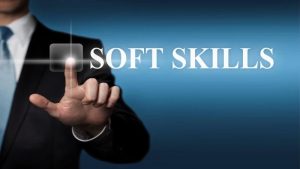 Personality and so-called “soft skill” measures (e.g., behavioral, attitudinal, situational judgment) have a long history of use in occupational testing for a wide range of applications. Soft skill assessments are receiving increased attention as assessment users realize the importance of gathering more comprehensive insights. As a result, these assessments are increasingly used in contexts that call for results to be reported in terms that business professionals, and others without psychological expertise, can understand and use in a variety of settings. One example of this trend is the derivation and reporting of competencies rather than traits or constructs. Another example is the evolution of behaviorally-oriented measures such as Emotional Intelligence (EI) instruments and Situational Judgment Tests (SJTs).
Personality and so-called “soft skill” measures (e.g., behavioral, attitudinal, situational judgment) have a long history of use in occupational testing for a wide range of applications. Soft skill assessments are receiving increased attention as assessment users realize the importance of gathering more comprehensive insights. As a result, these assessments are increasingly used in contexts that call for results to be reported in terms that business professionals, and others without psychological expertise, can understand and use in a variety of settings. One example of this trend is the derivation and reporting of competencies rather than traits or constructs. Another example is the evolution of behaviorally-oriented measures such as Emotional Intelligence (EI) instruments and Situational Judgment Tests (SJTs).
Next month at ATP’s Innovation in Testing conference in San Antonio, Alan Mead (Talent Algorithms), Steven Stein (MHS), and I will explore current issues in soft skill assessment, including three major themes:
- Communicating Complex Personality Models within Organizations. Personality models are multidimensional but feedback must communicate an integrated “picture” of the candidate's preferences for acting and thinking. Competency models are one solution; instead of abstract personality trait scores, a competency model can be used to communicate business-related competencies that are tailored to a specific job.
- Contributions of EI to Whole Person Measurement. Emotional intelligence has developed into sets of skills (e.g., emotional self-awareness) and abilities (e.g., reading emotions) that provide incremental validity (beyond cognitive ability and personality) for many important criteria (e.g., job performance, leadership, entrepreneurship, and health) and which are more amenable to coaching and training. Studies will be presented documenting the unique contribution of emotional skills to performance.
- Using SJTs to Measure Behavioral Competencies. Situational Judgment Tests have evolved substantially. Incorporating multimedia scenarios and internet delivery, SJTs may be designed to assess a wide range of competencies, including “soft skills.” This session will explore the design and use of SJTs to assess soft skills, while providing a realistic and work-related assessment compared to traditional measures.
To learn more about these issues, please attend this session scheduled for Tuesday, February 20th, from 1:30 p.m. – 2:30 p.m., which will include individual presentations and a facilitated discussion with the audience.
We hope to see you there!
 John Weiner is Executive Vice President & Chief Science Officer at PSI. Contact him at jweiner@psionline.com or by phone at 818.847.6180.
John Weiner is Executive Vice President & Chief Science Officer at PSI. Contact him at jweiner@psionline.com or by phone at 818.847.6180.
Click here for more information about PSI’s comprehensive testing solutions.
